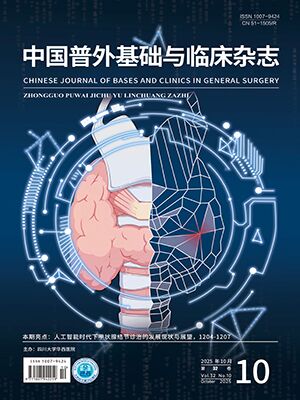Objective To study the efficacy and safety of endoscopic retrograde cholangiopancreatography (ERCP) and early endoscopic management for acute biliary pancreatitis.
Methods Ninety-one patients with acute biliary pancreatitis were divided into ERCP group (46 cases) and control group (45 cases) according to the therapy methods. All patients were given positive conventional treatment, the patients of the ERCP group accepted endoscopic therapy within 48 h after hospitalization. The curative effects of two groups were observed, and the related indexes, such as time of abdominal pain relief, temperature to normal, leukocytes to normal, liver function to normal, average time in hospital, and mortality were compared between two groups.
Results Among 46 patients by ERCP diagnosis, there were 27 cases of common duct stone (CDS), 6 cases of cholecystolithiasis, 3 cases of great diverticulum at duodenal papilla side, 4 cases of suppurative cholangitis, 3 cases of stenosis in bile common duct inferior segment and 3 cases of no abnormality. Among 27 cases of CDS, 20 patients had endoscopic sphincterotomy (EST), 4 had duodenal papilla artifistulation, 20 had calculus removed by once basket and aerocyst, and 7 patients with suppurative cholangitis and great stone saccepted EST or macadam after stabilization. The cases of great diverticulum at duodenal papilla side and cases of stenosis in bile common duct inferior segment accepted EST, the cases of suppurative cholangitis accepted endoscopic nasobiliary drainage (ENBD), and all accepted ENBD. The time of abdominal pain relief, temperature to normal, leukocytes to normal, liver function to normal, and the average time in hospital in the ERCP group were significantly shorter than those in the control group (P lt;0.05). The blood amylase to normal time and mortality had no significant differences between two groups (P gt;0.05).
Conclusion The early endoscopic management for patients with acute biliary pancreatitis can clear etiology, reduce the time in hospital and be minimally invasive, safe, and effective.
Citation: JIN Anqin,HUANG Xiaojun,WANG Wei,FENG Yanhu,LIU Ziyan.. Clinical Study of Early Endoscopic Management for 46 Patients with Acute Biliary Pancreatitis. CHINESE JOURNAL OF BASES AND CLINICS IN GENERAL SURGERY, 2010, 17(10): 1001-1005. doi: Copy
Copyright © the editorial department of CHINESE JOURNAL OF BASES AND CLINICS IN GENERAL SURGERY of West China Medical Publisher. All rights reserved




